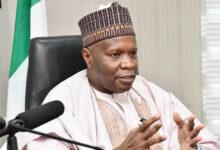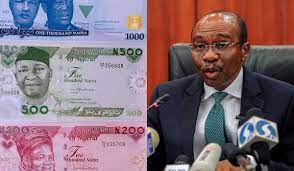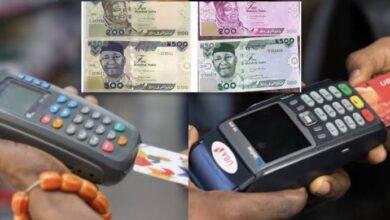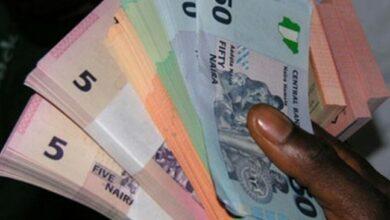
15 functions of the Central Bank of Nigeria
In this post we discuss the 20 functions of the Central Bank of Nigeria. This information is very useful for policy formulation and for research purposes.
The Central Bank of Nigeria (CBN) was established by the CBN Act of 1958 and commenced operations on July 1, 1959.
👉 Relocate to Canada Today!
Live, Study and Work in Canada. No Payment is Required! Hurry Now click here to Apply >> Immigrate to CanadaThe central bank was instrumental in the growth and financial credibility of Nigerian commercial banks by making sure that all the financial banks operating in the country had a capital base (required reserves).
The Central Bank of Nigeria (CBN) has also taken responsibility for nurturing the money and capital markets. Sequel to this, the CBN introduced treasury bills in 1960, treasury certificate in 1968, and facilitated the establishment of Lagos Stock Exchange in 1961 and the capital issue committee now known as the Securities & Exchange Committee in the early 1970s.
Mr. Godwin Emefiele, the former Zenith Bank Plc Chief Executive assumed the mantle as the 11th CBN chief as well as its 10th indigenous governor. Emefiele, who replaced Mallam Sanusi Lamido Sanusi, whose tenure elapsed on 1st of June, brings to the job over 20 years of banking experience.
20 functions of the Central Bank of Nigeria
Below are some of the functions played by Nigeria’s Apex bank (CBN)
1. Banker to banks and other financial institutions
Central bank keeps account for commercial banks as well as other financial institutions operating within the country.
2. Banker and Adviser to the government
The Central bank plays the role of financial advisers to the federal government in the following capacities;
Provides foreign exchange for payment of debts or purchase of foreign goods
👉 Relocate to Canada Today!
Live, Study and Work in Canada. No Payment is Required! Hurry Now click here to Apply >> Immigrate to CanadaAccepts deposits from the government
Offers financial information and counsel to the government on economic, monetary and fiscal matters
Maintains the account of the federal government
3. Lender of last resort
The CBN maintains current account for commercial banks. Similarly, it undertakes trade finance functions on behalf of banks’ customers. Finally, it provides temporary accommodation to banks in the performance of its functions as lender of last resort.
4. Debt Management
The Central bank manages domestic debt under strict compliance to instructions from the federal ministry of finance. On the domestic front, the Bank advises the Federal Government as to the timing and size of new debt instruments, advertises for public subscription to new issues, redeems matured stocks, pays interest and principal as and when due, collects proceeds of issues for and on behalf of the Federal Government, and sensitises the Government on the implications of the size of debt and budget deficit, among others.
5. Clearing house for cheques and other financial instrument The Central Bank performs the duty of a Clearing House for cheques.
It settles the accounts of commercial banks and enables them to clear their dues by the process of book entries. It should be carefully noted that a Central Bank does not come in competition with other banks. That is why it does not pay interest on the money kept with it.
Promotion and maintenance of monetary stability and efficient financial system: The effectiveness of any central bank in executing its functions hinges crucially on its ability to promote monetary stability.
Price stability is indispensable for money to perform its role of medium exchange, store of value, standard of deferred payments and unit of account.
6. Control of Credit
Perhaps the most important function of a Central Bank today is the control of credit, i.e., regulating the volume and direction of bank loans.
Maintenance of Exchange Rate: Another very important function of a Central Bank is to maintain a stable external value of the home currency.
A stable exchange rate is necessary to maintain and promote a country’s foreign trade and to encourage the inflow of foreign investments, which is so essential for accelerating the pace of economic growth, particularly in the under-developed countries.
In order to maintain the rate of exchange stable, a Central Bank is always prepared to buy and sell foreign currencies at the rates fixed by it.
7. Custodian of National Reserves
It is the Central Bank which serves as the custodian of nation’s reserves of gold and international currency. It is its duty to take appropriate measures to safeguard these reserves.
8. Monopoly of Note-Issue
Formerly, in certain countries like the U.K., even ordinary banks used to issue notes. This resulted in uncontrolled confusion.
Hence gradually the right of note-issue was withdrawn from other banks and conferred on the Central Bank. Thus, note-issue became the sole privilege of the Central Bank in a country and its notes became full legal tender.
9. Monetary stability
Monetary policy decision-making and implementation are the defining characteristics of the central bank. Whichever institution undertakes these functions is, in essence, the central bank.
However, there are differences between countries as to how extensive the central bank’s independent responsibilities are for these aspects of monetary policy making.
The Central bank promotes the reliable, efficient and smooth operation of national payment and settlement systems
10. Maintenance of the foreign exchange rates
The central bank is required to maintain the rate of exchange, i.e., the external value of the currency it has to conduct foreign exchange operations at some specified exchange rates. It also exercises the exchange control, i.e., control of foreign exchange.
11. Strengthening the banking structure
The central bank is required to take various steps such as deposits insurance, extension of banking facilities in the unbanked areas, etc. for strengthening the country’s banking structure.
12. Control and supervision of other banks
The central bank controls and supervises the operations of other banks through licensing, inspection of bank accounts, bank mergers, etc.
13. Set interest rates to target low inflation and maintain economic growth
To make a judgment on inflationary pressures. CBN examines every aspect of the economic situation and look at a variety of economic statistics to get a picture of the whole economy.
Asset purchase facility Bank Central Bank of Nigeria has since 2009, served as an Asset Purchase Facility (APF) to buy “high-quality assets financed by the issue of Treasury bills and the Debt Management Office (DMO‘s) cash management operations” and thereby improve liquidity in the credit markets
14. Central Bank of Nigeria Promotes Consumer Protection and Community Development:
The Customer is the most important person in the economy and every business succeeds only when the customer is happy. This explains why the customer is regarded as King.
As a King, the customer has many rights. But a King also has duties which he owes himself and the economy. In Nigeria, customers of banks have certain rights and duties guaranteed by law, regulation and conventions.
Some of these rights includes; right to choose, right to privacy and confidentiality, right to safety, right to equality, as well as right to good service.
15. It regulates the laws to balance the inflation and deflation in the economy
Developmental finance role: The central bank of Nigeria conducted development finance roles through its credit schemes such as: Refinancing facilities for agricultural export commodities, Rural finance and banking support scheme, Agricultural credit guarantee scheme, Commercial agricultural credit scheme, Small and medium scale industry credit scheme








